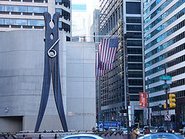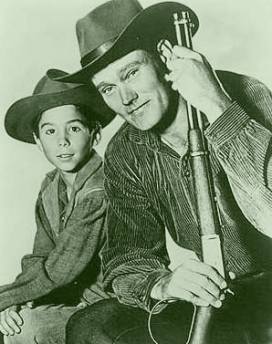
• Don't talk about monthly payments. Focus strictly on the purchase price of the car.
• Don't tell a car dealer about your trade-in until the right time.
• Get your own financing to save on interest rates but do not mention it until the right time.
• Paying cash (or starting out by telling the dealer that you are paying cash) may hinder your chances of getting the best deal.
Apprehensive about shopping for a new car? Afraid you'll say the wrong thing to a car dealer that will give him the upper hand in the price battle? Shopping for a new car, or even a used one, doesn't have to be that kind of nerve-jangling roll of the dice that it was many years ago. For starters, the advent of the Internet allows car shoppers to go into battle armed with more information today than ever. It's quite easy to get basic information that includes MSRP, features, options and reviews on any car you might have your eye on before you visit a car dealer, rather than having to trust the dealer to educate you.
With more car dealers out there now than ever before, consumers also now have more leverage. It's a common consumer tactic to play two car dealers off each other, or in auto dealer parlance, "cross-shopping," to see which one can give you the best deal. But it still helps to know what to say and what not to say as you and the car dealer play the game of haggling the price, because, you could still say the wrong thing to give the car dealer a leg up on the negotiations. We spoke to an AAA car-buying expert and an auto dealer to find out what NOT to say once you're on a car dealer's turf and what TO say.
What NOT to do:
"Under no circumstances should you start talking about monthly payments ... "
"Under no circumstances should you start talking about monthly payments," says John Nielson, Director of Auto Repair and Buying for AAA.

 ade in:
ade in:Fundamentally, says Bill, "dealerships like to move money around. So it probably also is not in the buyer's best interest to mention right up front that he or she has a car they want to trade in. Because once we know that, we know you're looking to get as much money as you can out of the trade-in."
" Face it, dealers are trying to make a living ... " Nielson laughs, "You probably also shouldn't tell them that you recently had a car repossessed, or that you have bad credit. That kind of information probably won't work in your favor." And while it may be unwise to tell a dealer you're desperate for a car -- information that can being out the shark in any sales rep -- there's nothing wrong with telling the car dealer that you're definitely looking to a buy a car in the next few days. "Face it, dealers are trying to make a living," says Nielson. "So if they think you're just out kicking tires and are six months away from making a purchase, they might think you're wasting their time, so you won't get as much attention from them."
That's why Nielson advises prospective car buyers, "Do your homework;
- find out what incentives are out there
- use a payment calculator you can find online
- you want to be educated on how much car you can get into for the price you want to pay
- Also, it's best to get *pre-approved for a car loan before you even walk into the Thunderdome -- er, the dealer showroom. (but do not mention it up front - see * below)
Bill says, "That way, if we know up front you're pre-approved to get your financing elsewhere, we're not going to try and hit you with a high interest rate. That's what a lot of dealers will try to do without even knowing what your credit rating is.
PAYING CASH? DO NOT SAY SO RIGHT AWAY One issue to factor in is whether or not you intend to pay cash. (If only all of us should be so lucky to have that kind of coin lying around.) If you do intend to pay cash, Bill tells us that's something you may not want to say right up front.
"When dealers are negotiating the purchase price, they anticipate making money on the back end, via financing," Bill explains. "So if you tell them up front you're paying cash, the dealer knows he has no opportunity to make money off you from financing. So, he might not be as moveable on purchase price if he already knows he isn't going to make any money off you from financing." *This likely holds true if you've been pre-approved for financing. It's best not to reveal your hand on the outset that you don't plan to use dealer financing before you negotiate the vehicle price.
It's not necessarily bad form for the buyer to tell the car dealer up front that he's strongly considering financing the car through the dealer -- and then, later, saying, "I changed my mind," after negotiating the purchase price. "The buyer CAN get a better deal if he does that," concedes Bill, "because all along, in that scenario, the dealer is maybe knocking something off of the top of the purchase price thinking he's going to get some interest out of you on the financing.
"Finally, confirms Bill, "It's OK to say you've been to other dealers, because cross-shopping between two dealers is always a good idea.
From the dealer standpoint, customer service is what separates one dealership from another dealer who sells the same brand. Some customers are willing to pay more money if they were treated right during the purchase process, because that's a pretty good indicator that you'll also be treated right later on, when you come back to have your car serviced or repaired."
Here is a great link to a site that collects "Confessions" from Car Sales people who can't abide the deception any more. There is LOTS of great advice!
By CRAIG HOWIE, AOL AUTOS
Edited and Added to By PEGGY CORTEZ, SPOT THOSE TURNS







No comments:
Post a Comment